Damn general. Nikolai Kamensky and his nickname Suvorov
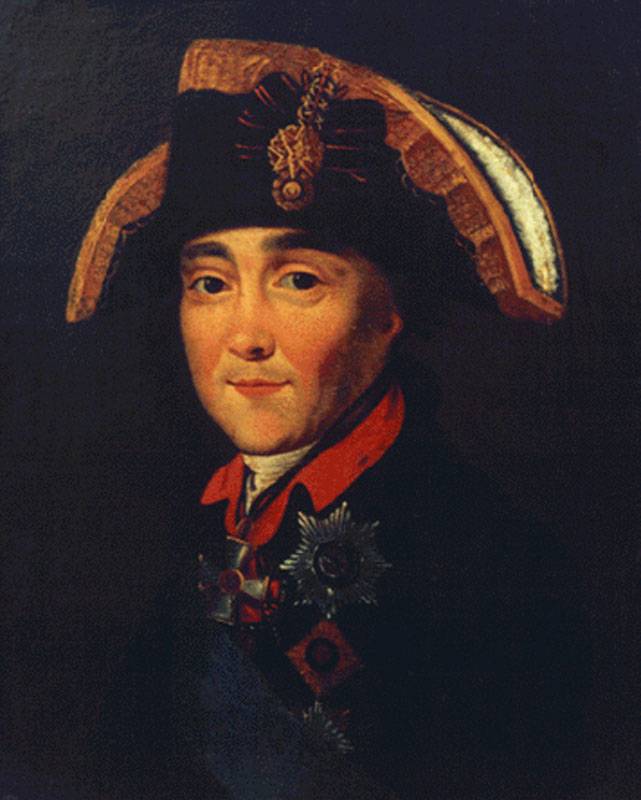
In his youth, he went to France for two years (1757-1759), where he entered military service as a volunteer "to gain experience in the art of war". As part of the French army took part in the Seven Years War. In 1765, he was chosen as a military agent in the army of Frederick II, where he was sent to get acquainted with the training program for the troops. Frederick II later called him a “young Canadian”, but “rather incarnated”. Frankly speaking, a not too flattering comparison in those times is certainly not quite a savage, but something very close. As part of the Russian army M.F. Kamensky took part in two wars with Turkey, fought against the troops of the Bar Confederation in Poland. In addition to military service, he served as governor of the Ryazan and Tambov provinces and even St. Petersburg. In 1797, he reached the rank of Field Marshal. In the same year, Paul I granted him the title of count. Ségur spoke about MF Kamensky as a general who is not afraid of death, but considered a man to be cruel and quick-tempered. Other contemporaries point to the extremely irritable and unbalanced character of M. Kamensky. A.V. Suvorov recognized his military abilities, saying that Kamensky "knows tactics." Some even considered him his only rival to Suvorov, whom he clearly imitated: he sang on the kliros and demanded that at the table he be served only the simplest and coarsest food, and his hair tied with a rope behind him in the form of a bundle. At the same time, Mikhail Kamensky was very jealous of the glory of his great contemporary, he constantly felt that his military achievements were underestimated, and he did not hesitate to publicly show his displeasure. When Catherine II handed him gold rubles as a gift to 5000, M. Kamensky, offended by the “insignificance” of the sum, defiantly spent the money for breakfast in the Summer Garden, to which he invited everyone he came across. It is not surprising that the empress did not love him too much, calling him “the most boring man in the world.” Moreover, she once said that "Kamensky is good for nothing." Nevertheless, Derzhavin in his poems called MF. Kamensky "bulat observant in the battles, the remaining sword of Catherine ..." However, the last loud appointment of Field Marshal scandal ended: after the defeat at Austerlitz, he was sent to command the Russian army, but after 7 days he escaped from its location, ordering them to retreat. On this occasion, F. Wiegel sarcastically noted in his memoirs that “Catherine’s last sword lay in its sheath for too long and therefore rustled.” Posted in the village, M. Kamensky led the life of a typical "wild landowner" and was killed by some of his yard people. According to a rather convincing version, the initiator of his murder was made by the young mistress of the count, who, apparently, was unbearable to endure the “courtship” of the hateful old man. The revenge of the government was terrible: 300 serfs were sent to hard labor and recruits. It is MF. Kamensky became the prototype of the old Prince Bolkonsky in the novel by L.N. Tolstoy "War and Peace."
The sons of the count also experienced the burden of his character. They were very afraid of reprimands and punishments of their father; until the end of their lives in his presence, they did not dare to smoke and smell tobacco. The eldest of them, Sergey, already being an officer, was once publicly beaten by his father arapnik. It is curious that he was the mother's pet, but the father always singled out the youngest - the hero of our article. Many contemporaries say that the relations between the brothers were not close, but rather they could be called hostile.
Both sons of Field Marshal became generals. Already mentioned by us Sergey (Kamensky I) inherited many unpleasant traits of his father’s character. He lived a long life, fought a lot, but after a quarrel with the commander of the Third Western Army, AP Tormasov, from October 19 1812 went on indefinite leave "to cure the disease." In his estate, he behaved about the same as his father, but with great sophistication. So, under the guise of a theater, he got a harem of serf girls (a fairly common practice, by the way, and there were also choirs) - it’s nice to spend the night with Titania today and tomorrow with Cleopatra. Some big-bellied gentleman feels like the king of the elves, or Julius Caesar, and self-esteem rises right before our eyes. The revenge of the serfs and the tragic fate of his father Sergei escaped, and died his own death.
The character of Field Marshal's youngest son, Nikolai (Kamensky II, born in 1776), was also very complex. He was cold with the officers subordinate to him, he did not try to please anyone, which is why many people disliked him. But he was very popular among the soldiers of his regiments, because, on the one hand, he always showed concern for their allowances, constantly quarreling with thieving quartermasters, and on the other, was demanding not only in relation to the lower ranks, but also to the officers.
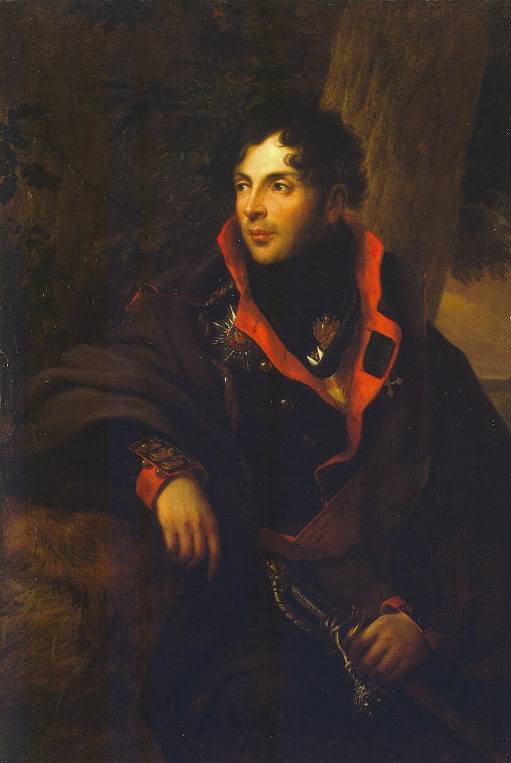
In his military career, he was ahead of his older brother, a year earlier he received the rank of general, and even was his chief during the 1810 campaign of the year (Russian-Turkish war).
Like his older brother, Nicholas studied in the Imperial land gentry corps. He began his military service as a cornet in the Novotroitsky Cuirassier Regiment. At one time he served as adjutant at the headquarters of his father, which, given the character and exactingness of the elder Kamensky, can hardly be called a "sinecure". In the 1795 year with the rank of lieutenant colonel, he was transferred to the Simbirsk Grenadier Regiment, then to Ryazan, and in 1799, having received the rank of Major General, he was appointed to command the regiment, which from 1801 onwards will become the Arkhangelsk Musketeer (until were called by the name of their commander). It was with this regiment that he became famous during the Italian (for the battle of Trebiya the regiment was awarded the "Grenadier March"), and, especially, the Swiss campaigns of Suvorov.
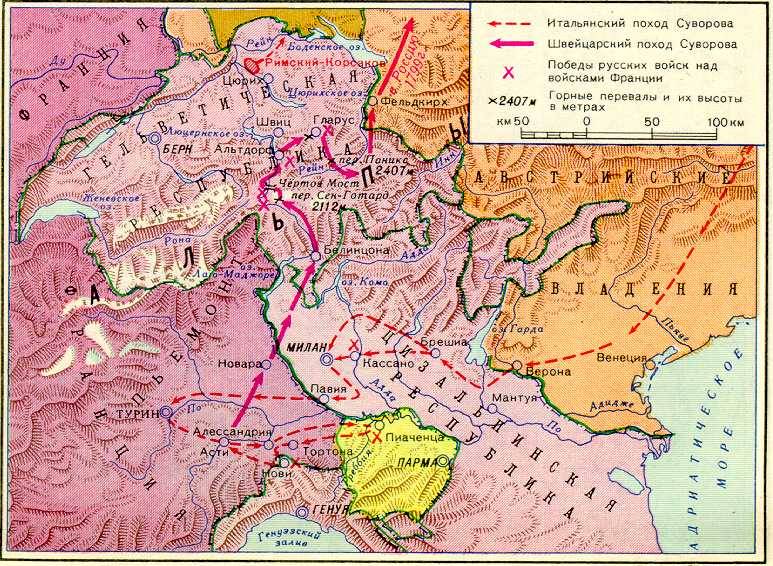
Swiss campaign A.V. Suvorov
As you know, at the end of the summer of 1799, Mr. Suvorov was ordered to go to Switzerland, where, according to a plan drawn up by the notorious Weyrother, three relatively small separate armies (Suvorov, Rimsky-Korsakov and Austrian Friedrich von Gotz) were to defeat the French general he will later become a marshal) Andre Massena. For some reason it was assumed that this commander, who in France of those years was called 'Enfant chéri de la Victoire (“favorite child of victory”), would stand quietly, waiting for all the allied armies to unite.
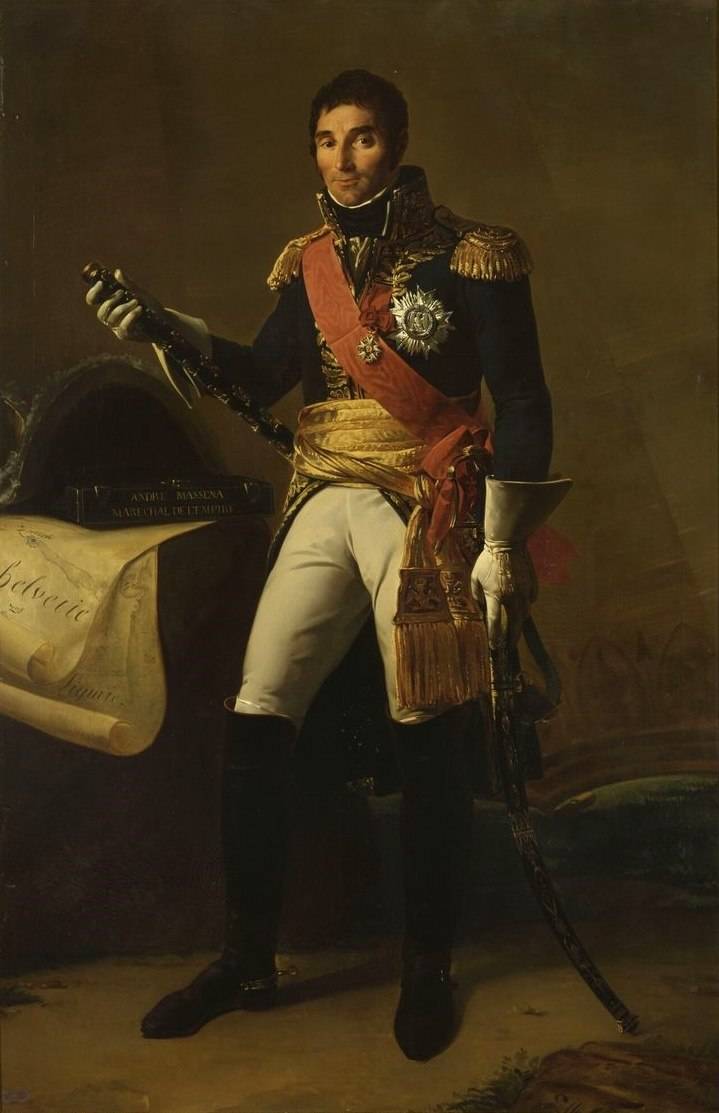
Massena, of course, did not stand and took advantage of the chance to smash opponents in parts. So, when Suvorov's troops were drawn into the mountain gorges of the Alps, they had no one to connect with: the army of Rimsky-Korsakov was defeated, von Gotz's army received an order to withdraw from Switzerland. In addition, it turned out that the roads indicated on the issued maps mainly exist only on maps, and the real ones are reliably blocked by the French. In general, Suvorov's Russian army was trapped, any other commander would probably try to break through back to Italy. But Suvorov continued his campaign, while he, in essence, "advancing", retreated. And there are historians who compare the campaign of the Russian army across the Alps with Napoleon's breakthrough through the Berezina: in both cases, the retreating armies suffered heavy losses, and in both cases the enemy, who was in a much more advantageous position, failed to stop and destroy the army of the retreating. However, the losses of the French, both in quantitative and in percentage terms, were much higher, moreover, unlike Napoleon, Suvorov did not leave his banners to the enemy and even brought about 1500 French prisoners with him. Therefore, in France, the expression "C'est la Berezina" is a symbol of collapse and defeat, and Suvorov's Swiss campaign in military schools and academies is studied as an example of high military art. And even Massena himself, upon the news of the death of the Russian Generalissimo, said: "I would give all my 48 battles for 17 days of Suvorov's Swiss campaign." Another thing is Paul I and his entourage, who were very unhappy with the final of Alexander Vasilyevich's European campaign. The emperor did not even receive the returning commander and did not appoint any celebrations. And three weeks later Suvorov died, having said before his death to Kutaisov: "I don't want to think about the sovereign now."
But let us return to Switzerland at the end of August-beginning of September 1799. September 12; left column of Suvorov troops under the command of General V.Kh. Derfelden (about 15 000 people, among whom was the regiment of N. Kamensky) came to the St. Gotthard pass. It is curious that during the Russian-Turkish war 1770-1774. Derfelden served under the authority of our hero's father, MF Kamensky. The right column (commander - A.G. Rosenberg, near the 6000 soldier) approached the village of Urzern in the rear of the French brigade of General Gudin. The vanguard of the left column was commanded by P.I. Bagration, right - MI Miloradovich. Rosenberg’s troops attacked the French on Mount Crispale and forced them to withdraw. The detachment of Bagration, supported by General Baranovsky, who acted on the St. Gotthard pass, also pushed the enemy away — not too far: up the slope, the new French position looked completely unapproachable. Nevertheless, the next day, the Gotthard Pass was taken from the third attempt, and the retreating French left all their artillery.
However, the Unzern Loch (Unzern Hole), the first tunnel built in the Alps, was ahead. Its length was about 67 meters, the width - just 2 meters. And in 400 meters below him, the same “Devil's” bridge was thrown across the gorge. Take them to detachment A.G. Rosenberg (a talented Russian general of the Suvorov school, from the Germans of Courland). In the Unzern tunnel, the enemy installed a canister for firing the canister, which made impossible the advance of Miloradovich soldiers. However, it was foolish to beat the enemy head-on in such adverse conditions. And because Suvorov sent three troops around. It was the actions of these units that determined the success of the operation. The 200 soldier, led by Major Trevogin, crossed the Reis to the waist in icy water and climbed the cliffs to the left bank in the rear of the French troops. Another 300 of the Russian soldiers of the Orlov Musketeer Regiment, wearing sandals with spikes on their boots, went around Unzern-Loch. Seeing them descending from the summit, the French, fearing encirclement, hurried to leave the tunnel and retreat to the bridge.
Throwing a cannon into the river, the French retreated to the other side of the River Reis, trying to blow up the bridge behind them, but only its central span collapsed. The Russian soldiers chasing them were forced to stop. Lined up in a row, standing on opposite banks of the river, opponents literally shot each other.
It was at this moment that the regiment of N. Kamensky came out to the left bank of the Reis - the main surprise of Suvorov. Kamensky managed to bypass the enemy positions through the village of Betzberg, as a result of which his regiment was in the rear of the enemy. When fighting with the enemy, N. Kamensky for the first time in his military career was on the verge of death: a bullet pierced his hat. The memoirists note that "the movement of the regiment of Count Kamensky coincided with a decisive turning point in the battle in favor of the Russians." It was for these actions in the battle for the Chertov Bridge that N. Kamensky received the Order of St. Anne 1 Art. His father Suvorov wrote: "Your young son is an old general." From this time Nikolay Mikhaylovich himself, hinting at his merits in this battle, he began to call him a Devil General.
Meanwhile, having disassembled a nearby shed, the Russians, under continuous enemy fire, bound the logs with officer scarves and blocked the destroyed bridge span. The first major Meschersky stepped on the opposite shore - and was immediately fatally wounded. Noteworthy are the last words of the major: “Friends, do not forget me in the message!” The comrades did not forget, so that this phrase and the circumstances of the death of Meshchersky were included in history. In the future, the crossing to the other bank was carried out, of course, not along these bound scarves and shaky boards: the Austrian sappers who were attached to the Russian army restored the bridge.
After crossing the Army through Reis, Suvorov intended to move to Schwyz. And it was here that it turned out that the road to it exists only on the map. Now there was only one way - through the snow-covered Kinzig-Kulm pass of the Rostok mountain range. The army came out on the morning of September 16, units of Bagration traditionally walked in front, units of Rosenberg moved in the rearguard, which reflected two attacks by French troops of General Lecoub during the journey. Rosenberg squad arrived in Muten only on the evening of September 18. It was here and on this day that news of the defeats of Rimsky-Korsakov and von Gotze came. Continuing to Schwyz now was meaningless, and the exits from the valley were already blocked by Massena. The situation was so desperate that at the military council Suvorov cried, turning to his generals. His speech is known to us by P. Bagration's record:
After these words, Suvorov sobbed.
Through the Pragel Pass, the army of Suvorov moved into the Klenthal valley, Kamensky's regiment was part of the avant-garde units commanded by Bagration, Rosenberg's corps moved in the rearguard. September 19 advanced units of the Russian troops were attacked by the French, but overturned them and pursued for the length of 5 km. On this day, Kamensky, with a battalion of his regiment, managed to move to the right bank of the Lynta River, occupying the village of Molis and seizing 2 cannons, a banner and 106 prisoners. The main battle took place the next day, André Massena took a personal part in this battle. However, the Russian counterattack was so furious that the French fled, Massena himself was almost captured, being removed from his horse by non-commissioned officer Ivan Makhotin who had a golden epauletum in his hands (his authenticity was confirmed by the captured general La Curc). Then, after winning another victory in the battle of Glarus (30 of September), the Russian army withdrew from the Alpine trap.
1805-1807 military campaign
The next big battle, in which N.M. Kamensky, became the famous battle of Austerlitz. According to the plan of the same ill-fated Veruyter, the Allied Russian-Austrian troops were divided into 6 columns. The main role was assigned to the first three (under the command of F. Buksgedenden), which were supposed to strike at the minor right flank of the enemy. Moreover, they also had to go around it, going up to 10 versts and stretching the front to 12.
Pratzen heights dominating the area were occupied by the 4 column, from which Kutuzov was located.
The 5 and 6 columns (6 was commanded by PI Bagration) should have played a secondary role, while Napoleon attached great importance to this direction - because the failure on this flank closed its armies to the only possible route of retreat to Brunn. Therefore, covering the road hill Santon was ordered to defend to the last soldier.
On the morning of this fateful day, Napoleon, who was standing on Shlaponitsky hill, with great pleasure observed the senseless and useless movement of the first three columns, looking forward to the release of Pratzen heights by the 4 column. The Russian troops marched carelessly, without military guard, and at the foot of the hills, the advance units were literally swept away by the fire of the French who were waiting for them. Kutuzov then complained that the Novgorod regiment "did not hold on much," but it must be admitted that he himself was partly responsible for the defeat of the Russian avant-garde and the panic that had arisen, since, understanding the significance of these heights, Alexander I arrived at him ordering on reconnaissance along the way. With great difficulty, Miloradovich managed to restore the relative order, but the battle was almost lost. The three columns of Buxgawden, instead of turning back, still marched forward, tragically moving away from the rest of the army. The corps of Bernadotte and Lannes, with the support of the cavalry units of Murat, tied up the fifth and sixth columns. Descended from the Pratzen Heights 4, the column died under the blows of the far superior French forces. The famous, which ended in huge losses, the attack of the Russian Guard was virtually unsuccessful. Already in 11 hours, one more (besides Weyrother) evil genius of that day - Alexander I, gave the order to the general retreat. At this point, N. Kamensky's team was the only one that still retained some connection between the 4 column and the receding columns of Buxgevden. She naturally could not keep her position. Several times during this battle, cavalry units of the enemy surrounded her, she lost about 1600 under enemy artillery strikes, a horse was killed near N. Kamensky, and only the timely help of the battalion adjutant Zakrevsky saved him from death or captivity in that battle. However, Kamensky’s brigade succeeded in breaking out of its encirclement. Buxgeveden began to withdraw its troops only about one o'clock in the afternoon when the French troops were already in the rear of the 2 and 3 columns. The only bridge across the river Litava was destroyed by the enemy, the third column was almost completely destroyed, others, retreating through the gorge between the lakes, suffered huge losses. Despite the heavy defeat of the Russian army, for the courage shown in this battle, N. Kamensky was awarded the Order of St. Vladimir 3 Art.
The 1807 military campaign began for Kamensky at the crossing of the Alle River (January 22). In the battle of Preussisch-Eylau (January 26-27 old style), Kamensky commanded a division from the 5 regiments, which took part in one of its episodes - a hard battle for the village of Southgarten, which passed from hand to hand twice. On this battle, which ended in a “draw”, M. Ney said: “What a slaughter, and to no avail”! For participation in this battle N. Kamensky was awarded the Order of St. George 3 degree.
Later, Kamensky was sent to help besieged Danzig, but with the forces he had (4475 Russians and 3500 Prussian soldiers) could not succeed. In view of the obvious unrealistic nature of the task, no claims were made against him, on the contrary, Kamensky was informed that "the Sovereign did them all well."
29 of May of the same year, in the battle at Heilsberg, Kamensky’s division threw the French away from redoubt No. 2 and even pursued the retreating, but was forced to return to their positions when confronted with fresh enemy forces.
Following this military campaign, N. Kamensky was promoted to lieutenant general.
15 December 1807 of the Kamensky division was transferred to Finland.
The Russian-Swedish war 1808-1809
In the following year, 1808, during the war with Sweden, Kamensky replaced the unsuccessful N.N. Raevsky (the future hero of 1812) and won victories at Kuortana and Oravaise, which contributed a lot to the conquest of Finland. In 1809, he participated in hostilities to repel the Swedish landing at Rotan and at Sevara. For this campaign, N. Kamensky immediately received the 2 Order - of sv. Alexander Nevsky and then St. George 2 Art. A sign of recognition of his merits was also the title of General of Infantry, which, contrary to tradition, he received earlier than others on the list above (including his older brother). Commander of the Finnish Army, MB Barclay de Tolly, who himself, on the results of this campaign, bypassed many co-workers in the ranks, in his report described N. Kamensky as a “skillful general”. Therefore, the appointment of N. Kamensky to the post of commander-in-chief of the Danube army, acting against Turkey, seemed quite logical and did not surprise anyone. And he did not replace anyone, but his former commander in the previous campaigns - PI. Bagration! In the location of the army N. Kamensky arrived in March 1810 of the year. Here he met with his elder brother, Sergei, whose detachment was in the vanguard of the Russian forces in Dobrudja.
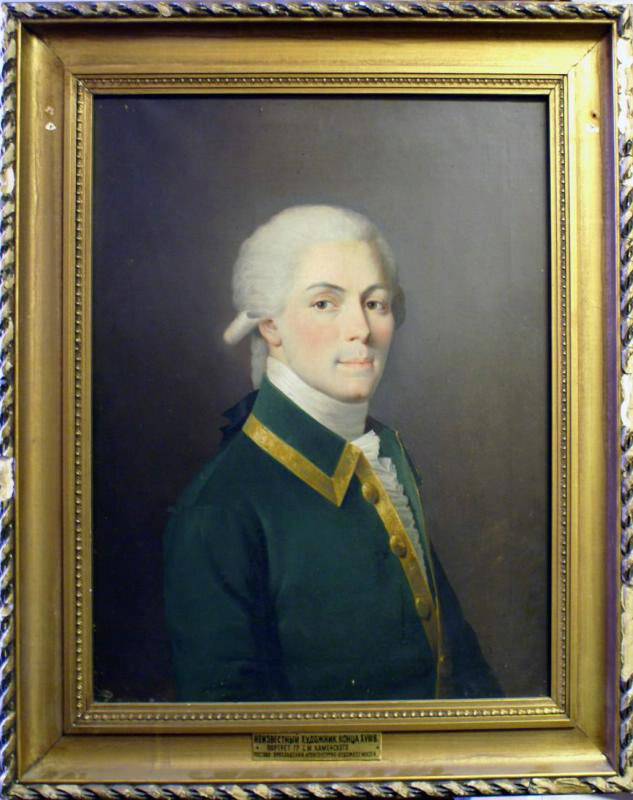
Military campaign against Turkey 1810 of the year
Nikolai entrusted to his brother the command of one of the columns, which moved towards Bazardzhik and defeated the corps of the Turkish commander Pelivan, and then captured the fortress of Razgrad. Itself at this time, after the 7-day siege, took Silistria (40 banners and 190 guns became the trophies). However, further failures followed: Nikolay Kamensky did not manage to take possession of the Šumla fortress, and then he got stuck under the walls of Ruschuk, his brother, under the pressure of superior enemy forces, was forced to retreat to Silistria in battle. But soon N.Kamensky managed to defeat Seraskir Kushakchi, who was moving to help the besieged Rushchuk fortress, under Batyn. The result of this victory was the surrender of Ruschuk, Nikopol, Severin, Prisoner, Lovcha and Selvi, the withdrawal of Turkish troops from the territory of Northern Bulgaria. In addition, 12-thousandth detachment of General Sass was sent to Serbia, which led to the defeat of Turkey in this direction. These events became the pinnacle of the military career of Nikolai Kamensky, who at that time was revered by everyone as the best student of Suvorov and the most talented general of Russia. Following the campaign, he received the Order of St. Vladimir 1 Art. and St. Andrew the First Called Apostle. Despite the fact that the emperor ordered the division of the Danube Army to 5 Russia, almost no one doubted that the 1811 military campaign of the year would end with a brilliant victory for N. Kamensky and complete capitulation of Turkey.
Illness and death N.M. Kamensky
The hostilities began as early as January 1811, when the squadron of EF Saint-Prix broke the vanguard of the Turkish army under the command of Omar Bey under Lovce. Alas, it was NM’s last victory. Kamensky, in February of the same year, he fell ill in March, transferring the command of A.F. Langeron, was forced to leave for treatment in Odessa. He was brought to this city already in serious condition. Some kind of fever, accompanied by hearing loss and impairment of consciousness, progressed with each passing day. 4 May 1811, at the age of 35 years, Nikolai Kamensky died. In place of the commander in chief, he was replaced by M.I. Kutuzov, who will end this war with the signing of the Bucharest peace treaty in May 1812.
In 1891, the Sevsky Infantry Regiment was assigned N.M. Kamensky. Now the name of this talented and outstanding commander is almost forgotten and is known only to specialists.
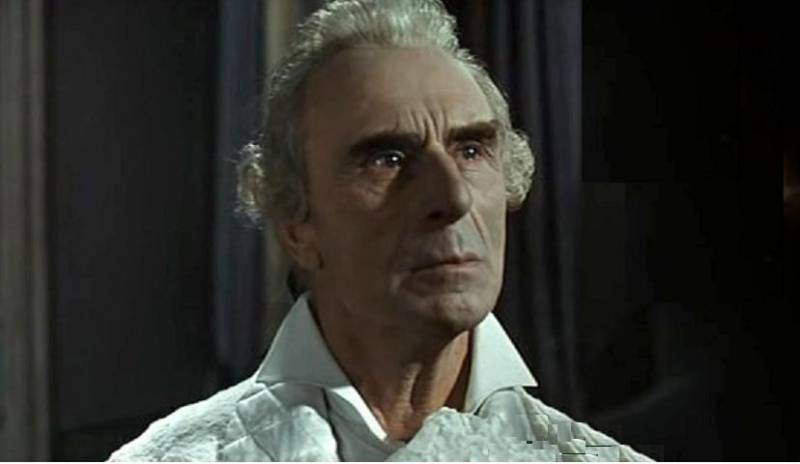
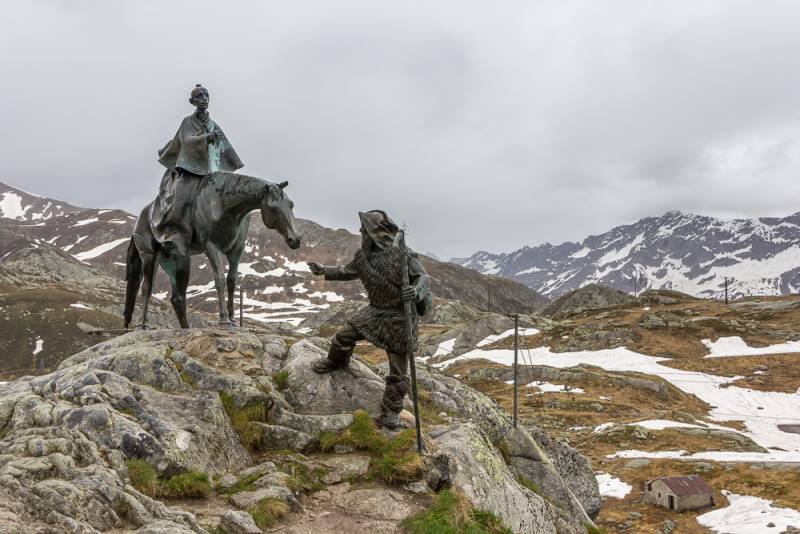
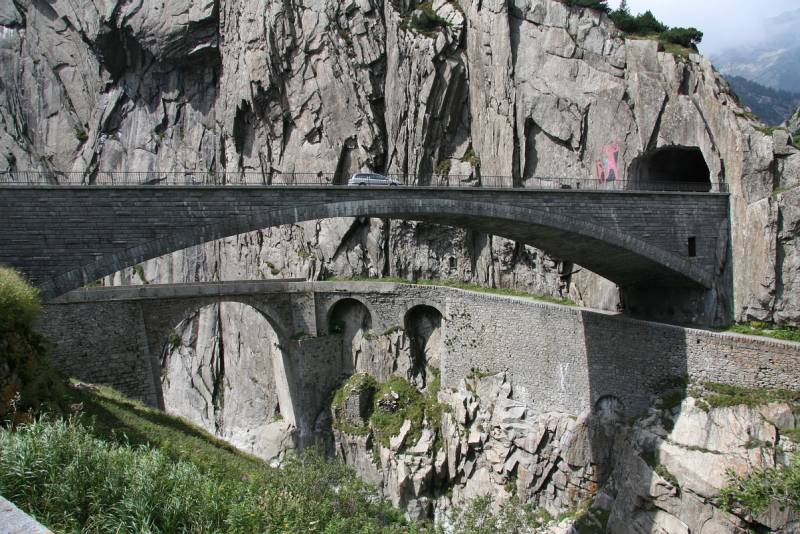
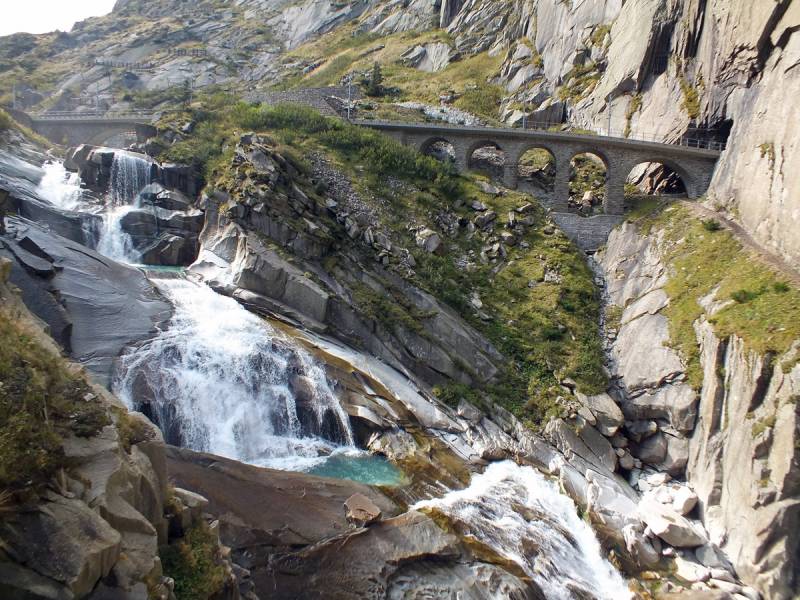
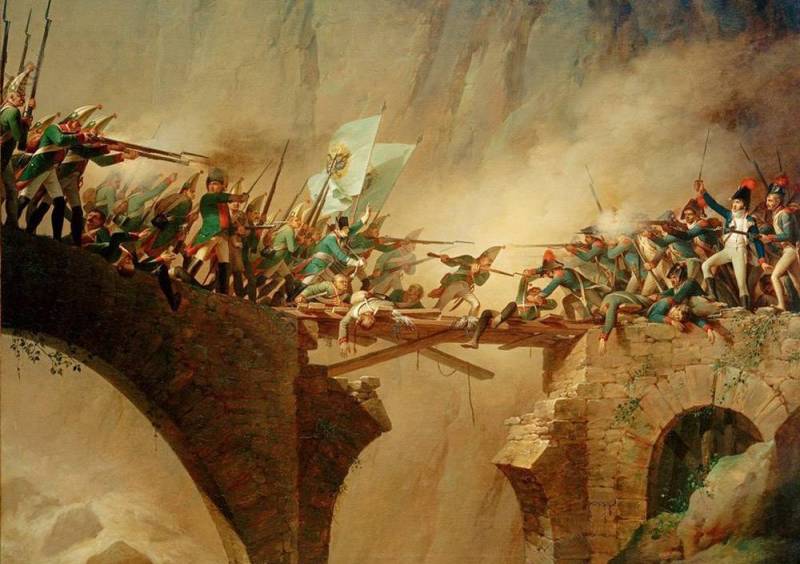
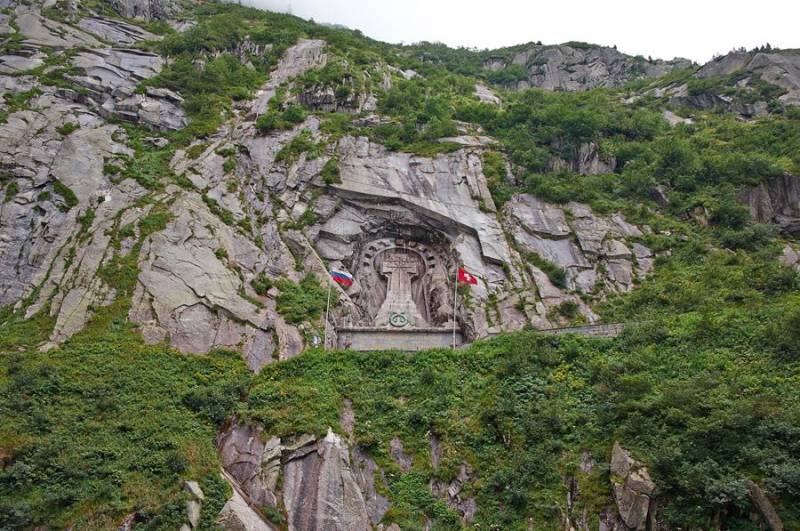
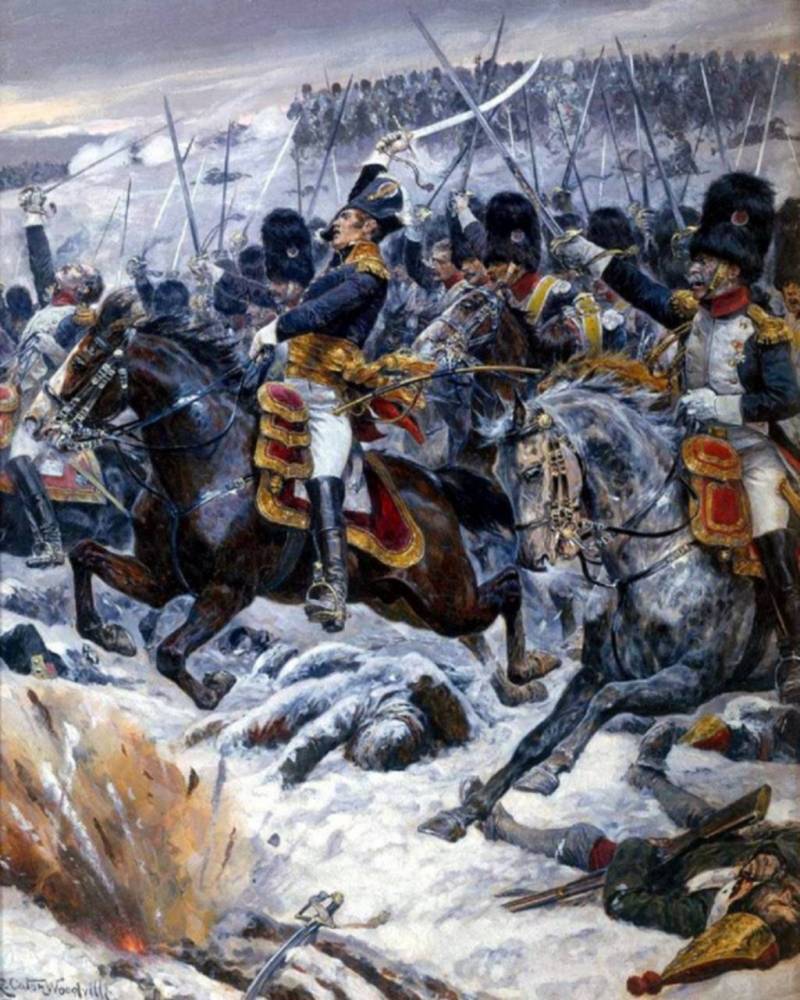
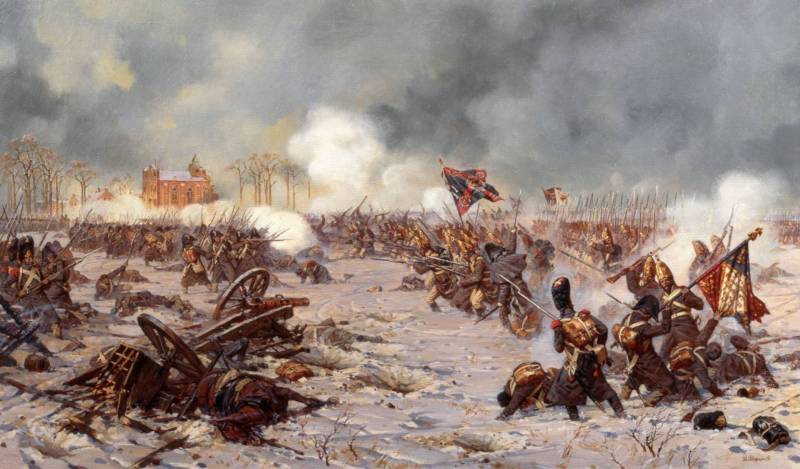
Information